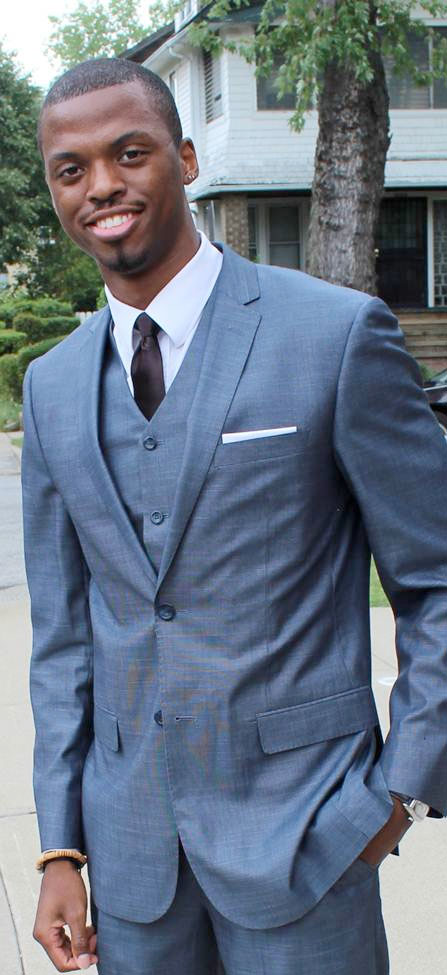 Nearly every inventor wants to see his idea become a reality. But getting to that point requires business savvy, legal expertise, marketing power and more. That’s where JeShaune Jackson and his organization, BioComm, come in.
Nearly every inventor wants to see his idea become a reality. But getting to that point requires business savvy, legal expertise, marketing power and more. That’s where JeShaune Jackson and his organization, BioComm, come in.
The startup group, which recently won second prize in Johnson & Johnson’s national Be Vital Challenge, aims to help quickly take biomedical research from lab to market, by pooling the brainpower of students in multiple disciplines.
Jackson, a 25-year-old working toward a master’s degree in biotechnology entrepreneurship and an MBA focusing in healthcare strategy, connected with other graduate students to create BioComm. Their ultimate goal: to have students across schools develop business plans and strategies for on-campus biomedical research projects and to teach students how to take a product from design to distribution.
“We believe that, collectively, we can produce business plans and develop strategies of the same quality as one seasoned professional,” Jackson explained. “We are allowing students to perform tasks they may be asked to perform in the future now, which will better prepare [them] for the workforce.”
Not only would students profit from the hands-on experience, but others would benefit from this expedited process. “Ultimately, we are working with products that could have potentially been placed on the market one day sooner, which may have possibly saved someone’s life,” he said.
Whether through BioComm or not, saving lives likely is in Jackson’s future. After he finishes his dual master’s degrees, he intends to enroll in medical school, specializing in primary care.
Between BioComm and two master’s programs, Jackson doesn’t have much free time, but he enjoys playing basketball, going to church and being with family and friends—when his schedule allows. “CWRU killed my social life,” he said, before clarifying, “I’m joking!”
Kidding aside, Jackson’s ideas have major promise. And his answers to our five questions are incredibly interesting. Get a glimpse inside the brain of the Bedford Heights native through this week’s Q&A.
1. What are you reading—and how are you reading it (print vs. digital)?
I read a lot of stem cell, biotech and MedScape journal articles. Leisurely, I mainly read GQ and Wired on my iPad outside of schoolwork. Digital is more interactive and even incorporates videos for visual learners, which is pretty cool.
2. What can’t you live without?
Science, religion and working out. I’m very big on developing myself from the core by focusing on the mind, body and spirit. And, although I could technically “live” without it, life without Call of Duty would be rather mundane.
Also, being 6’5” and slim, finding clothes that fit can be a challenge. Whatever black magic tailors perform deserves honorable mention.
3. What’s your favorite spot on campus?
The field in front of Veale. At CWRU, we all work very hard and a lot is asked of us, but we often forget to relax and enjoy life. It’s good seeing students just have fun.
4. What’s the best advice you’ve ever received?
The best advice I’ve ever received is, “You never know if the person sitting next to you could have the answer to something you’ve questioned your entire life, so be social.”
Create a LinkedIn [profile], get business cards and be social; your network is your net worth.
5. What’s your favorite thing about Case Western Reserve University?
The people here are great. The majority of students, staff and faculty are friendly and very willing to help each other. My professors have worked hard integrating in community collaboration with organizations and companies here in Cleveland. Everyone seems to enjoy coming in and giving back to students. Being able to leverage this network is why [BioComm’s] advisory board is composed of up to C-Level executives from Cleveland Clinic Innovations, University Hospitals Harrington Discovery Institute, BioEnterprise, JumpStart and many more. I believe a larger school or city would dilute the quality of these interactions, and everyone should capitalize the opportunity while here.

